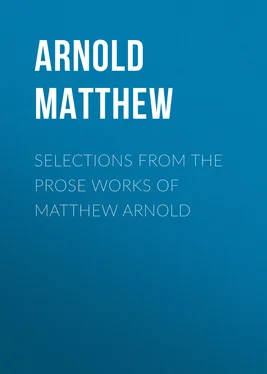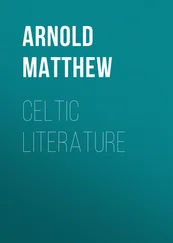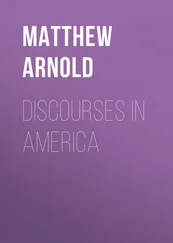Matthew Arnold - Selections from the Prose Works of Matthew Arnold
Здесь есть возможность читать онлайн «Matthew Arnold - Selections from the Prose Works of Matthew Arnold» — ознакомительный отрывок электронной книги совершенно бесплатно, а после прочтения отрывка купить полную версию. В некоторых случаях можно слушать аудио, скачать через торрент в формате fb2 и присутствует краткое содержание. Жанр: foreign_prose, literature_19, foreign_antique, на английском языке. Описание произведения, (предисловие) а так же отзывы посетителей доступны на портале библиотеки ЛибКат.
- Название:Selections from the Prose Works of Matthew Arnold
- Автор:
- Жанр:
- Год:неизвестен
- ISBN:нет данных
- Рейтинг книги:5 / 5. Голосов: 1
-
Избранное:Добавить в избранное
- Отзывы:
-
Ваша оценка:
- 100
- 1
- 2
- 3
- 4
- 5
Selections from the Prose Works of Matthew Arnold: краткое содержание, описание и аннотация
Предлагаем к чтению аннотацию, описание, краткое содержание или предисловие (зависит от того, что написал сам автор книги «Selections from the Prose Works of Matthew Arnold»). Если вы не нашли необходимую информацию о книге — напишите в комментариях, мы постараемся отыскать её.
Selections from the Prose Works of Matthew Arnold — читать онлайн ознакомительный отрывок
Ниже представлен текст книги, разбитый по страницам. Система сохранения места последней прочитанной страницы, позволяет с удобством читать онлайн бесплатно книгу «Selections from the Prose Works of Matthew Arnold», без необходимости каждый раз заново искать на чём Вы остановились. Поставьте закладку, и сможете в любой момент перейти на страницу, на которой закончили чтение.
Интервал:
Закладка:
But criticism cannot follow this coarse and indiscriminate method. It is unfortunately possible for a man in pursuit of truth to write a book which reposes upon a false conception. Even the practical consequences of a book are to genuine criticism no recommendation of it, if the book is, in the highest sense, blundering. I see that a lady 54 54 ~Frances Power Cobbe~ (1822-1904), a prominent English philanthropist and woman of letters. The quotation below is from Broken Lights (1864), p. 134. Her Religious Duty (1857), referred to on p. 46, is a book of religious and ethical instruction written from the Unitarian point of view.
who herself, too, is in pursuit of truth, and who writes with great ability, but a little too much, perhaps, under the influence of the practical spirit of the English liberal movement, classes Bishop Colenso's book and M. Renan's 55 55 ~Ernest Renan~ (1823-92), French philosopher and Orientalist. The Vie de Jésus (1863), here referred to, was begun in Syria and is filled with the atmosphere of the East, but is a work of literary rather than of scholarly importance.
together, in her survey of the religious state of Europe, as facts of the same order, works, both of them, of "great importance"; "great ability, power, and skill"; Bishop Colenso's, perhaps, the most powerful; at least, Miss Cobbe gives special expression to her gratitude that to Bishop Colenso "has been given the strength to grasp, and the courage to teach, truths of such deep import." In the same way, more than one popular writer has compared him to Luther. Now it is just this kind of false estimate which the critical spirit is, it seems to me, bound to resist. It is really the strongest possible proof of the low ebb at which, in England, the critical spirit is, that while the critical hit in the religious literature of Germany is Dr. Strauss's 56 56 ~David Friedrich Strauss~ (1808-74), German theologian and man of letters. The work referred to is the Leben Jesu 1835. A popular edition was published in 1864.
book, in that of France M. Renan's book, the book of Bishop Colenso is the critical hit in the religious literature of England. Bishop Colenso's book reposes on a total misconception of the essential elements of the religious problem, as that problem is now presented for solution. To criticism, therefore, which seeks to have the best that is known and thought on this problem, it is, however well meant, of no importance whatever. M. Renan's book attempts a new synthesis of the elements furnished to us by the Four Gospels. It attempts, in my opinion, a synthesis, perhaps premature, perhaps impossible, certainly not successful. Up to the present time, at any rate, we must acquiesce in Fleury's sentence on such recastings of the Gospel story: Quiconque s'imagine la pouvoir mieux écrire, ne l'entend pas . 57 57 From "Fleury (Preface) on the Gospel."—Arnold's Note Book .
M. Renan had himself passed by anticipation a like sentence on his own work, when he said: "If a new presentation of the character of Jesus were offered to me, I would not have it; its very clearness would be, in my opinion, the best proof of its insufficiency." His friends may with perfect justice rejoin that at the sight of the Holy Land, and of the actual scene of the Gospel story, all the current of M. Renan's thoughts may have naturally changed, and a new casting of that story irresistibly suggested itself to him; and that this is just a case for applying Cicero's maxim: Change of mind is not inconsistency— nemo doctus unquam mutationem consilii inconstantiam dixit esse . 58 58 Cicero's Att. 16. 7. 3.
Nevertheless, for criticism, M. Renan's first thought must still be the truer one, as long as his new casting so fails more fully to commend itself, more fully (to use Coleridge's happy phrase 59 59 ~Coleridge's happy phrase~. Coleridge's Confessions of an Inquiring Spirit , letter 2.
about the Bible) to find us. Still M. Renan's attempt is, for criticism, of the most real interest and importance, since, with all its difficulty, a fresh synthesis of the New Testament data —not a making war on them, in Voltaire's fashion, not a leaving them out of mind, in the world's fashion, but the putting a new construction upon them, the taking them from under the old, traditional, conventional point of view and placing them under a new one—is the very essence of the religious problem, as now presented; and only by efforts in this direction can it receive a solution.
Again, in the same spirit in which she judges Bishop Colenso, Miss Cobbe, like so many earnest liberals of our practical race, both here and in America, herself sets vigorously about a positive reconstruction of religion, about making a religion of the future out of hand, or at least setting about making it. We must not rest, she and they are always thinking and saying, in negative criticism, we must be creative and constructive; hence we have such works as her recent Religious Duty , and works still more considerable, perhaps, by others, which will be in every one's mind. These works often have much ability; they often spring out of sincere convictions, and a sincere wish to do good; and they sometimes, perhaps, do good. Their fault is (if I may be permitted to say so) one which they have in common with the British College of Health, in the New Road. Every one knows the British College of Health; it is that building with the lion and the statue of the Goddess Hygeia before it; at least I am sure about the lion, though I am not absolutely certain about the Goddess Hygeia. This building does credit, perhaps, to the resources of Dr. Morrison and his disciples; but it falls a good deal short of one's idea of what a British College of Health ought to be. In England, where we hate public interference and love individual enterprise, we have a whole crop of places like the British College of Health; the grand name without the grand thing. Unluckily, creditable to individual enterprise as they are, they tend to impair our taste by making us forget what more grandiose, noble, or beautiful character properly belongs to a public institution. The same may be said of the religions of the future of Miss Cobbe and others. Creditable, like the British College of Health, to the resources of their authors, they yet tend to make us forget what more grandiose, noble, or beautiful character properly belongs to religious constructions. The historic religions, with all their faults, have had this; it certainly belongs to the religious sentiment, when it truly flowers, to have this; and we impoverish our spirit if we allow a religion of the future without it. What then is the duty of criticism here? To take the practical point of view, to applaud the liberal movement and all its works,—its New Road religions of the future into the bargain,—for their general utility's sake? By no means; but to be perpetually dissatisfied with these works, while they perpetually fall short of a high and perfect ideal. For criticism, these are elementary laws; but they never can be popular, and in this country they have been very little followed, and one meets with immense obstacles in following them. That is a reason for asserting them again and again. Criticism must maintain its independence of the practical spirit and its aims. Even with well-meant efforts of the practical spirit it must express dissatisfaction, if in the sphere of the ideal they seem impoverishing and limiting. It must not hurry on to the goal because of its practical importance. It must be patient, and know how to wait; and flexible, and know how to attach itself to things and how to withdraw from them. It must be apt to study and praise elements that for the fulness of spiritual perfection are wanted, even though they belong to a power which in the practical sphere may be maleficent. It must be apt to discern the spiritual shortcomings or illusions of powers that in the practical sphere may be beneficent. And this without any notion of favoring or injuring, in the practical sphere, one power or the other; without any notion of playing off, in this sphere, one power against the other. When one looks, for instance, at the English Divorce Court—an institution which perhaps has its practical conveniences, but which in the ideal sphere is so hideous; an institution which neither makes divorce impossible nor makes it decent, which allows a man to get rid of his wife, or a wife of her husband, but makes them drag one another first, for the public edification, through a mire of unutterable infamy,—when one looks at this charming institution, I say, with its crowded trials, its newspaper reports, and its money compensations, this institution in which the gross unregenerate British Philistine has indeed stamped an image of himself, —one may be permitted to find the marriage theory of Catholicism refreshing and elevating. Or when Protestantism, in virtue of its supposed rational and intellectual origin, gives the law to criticism too magisterially, criticism may and must remind it that its pretensions, in this respect, are illusive and do it harm; that the Reformation was a moral rather than an intellectual event; that Luther's theory of grace 60 60 ~Luther's theory of grace~. The question concerning the "means of grace," i.e. whether the efficacy of the sacraments as channels of the divine grace is ex opere operato , or dependent on the faith of the recipient, was the chief subject of controversy between Catholics and Protestants during the period of the Reformation.
no more exactly reflects the mind of the spirit than Bossuet's philosophy of history 61 61 ~Jacques Bénigne Bossuet~ (1627-1704), French divine, orator, and writer. His Discours sur l'histoire universelle (1681) was an attempt to provide ecclesiastical authority with a rational basis. It is dominated by the conviction that "the establishment of Christianity was the one point of real importance in the whole history of the world."
reflects it; and that there is no more antecedent probability of the Bishop of Durham's stock of ideas being agreeable to perfect reason than of Pope Pius the Ninth's. But criticism will not on that account forget the achievements of Protestantism in the practical and moral sphere; nor that, even in the intellectual sphere, Protestantism, though in a blind and stumbling manner, carried forward the Renascence, while Catholicism threw itself violently across its path.
Интервал:
Закладка:
Похожие книги на «Selections from the Prose Works of Matthew Arnold»
Представляем Вашему вниманию похожие книги на «Selections from the Prose Works of Matthew Arnold» списком для выбора. Мы отобрали схожую по названию и смыслу литературу в надежде предоставить читателям больше вариантов отыскать новые, интересные, ещё непрочитанные произведения.
Обсуждение, отзывы о книге «Selections from the Prose Works of Matthew Arnold» и просто собственные мнения читателей. Оставьте ваши комментарии, напишите, что Вы думаете о произведении, его смысле или главных героях. Укажите что конкретно понравилось, а что нет, и почему Вы так считаете.












